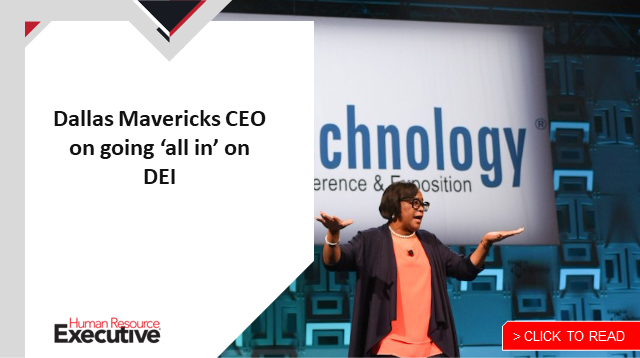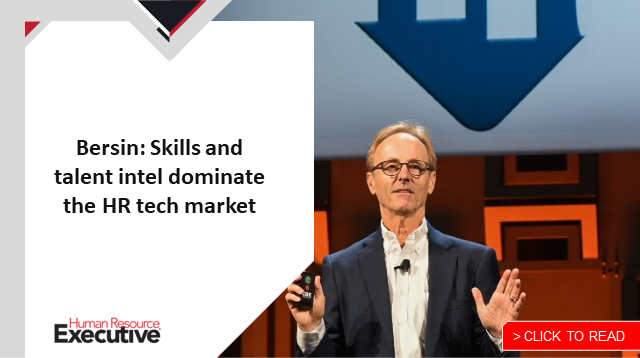With the 2022 HR Technology Conference now in the rearview mirror, I wanted to reflect on what a busy year of planning for the event, and an even busier week of executing the event, can teach us about the state of the HR technology market.
While the size and scope of the market continue to expand—even perhaps surprisingly through the pandemic years—I think it is still possible to make some sense of it. More importantly, we should seek to understand how to assess the market to make the best technology investments for our organizations. Here are a few of my biggest takeaways:
The HR technology market continues to grow—and get more complex.
Throughout the conference, as attendees took in what was the largest Expo Hall we’ve ever had, it was clear that the HR technology market has grown substantially and now even encompasses several non-traditional HR companies like Microsoft and ServiceNow, both of which have made significant investments in HR solutions. With the HR technology landscape becoming more diverse, the challenge for HR leaders is to stay informed of current developments as well as understand the advances and opportunities from experienced solution providers.
Adding to the complexity are new terms and new types of solutions like talent intelligence platforms and AI-based skills ontologies, which both are shaking up the status quo, driving the development of new solutions and altering the approach from several existing providers. These new developments require all HR leaders and their teams to constantly seek out reputable and comprehensive sources of insight. Of course, HR Tech does remain the single best event that brings this diversity of solutions together and creates an environment where HR leaders can compare the full breadth of solutions in one place.
Organizations can find value throughout the HR technology landscape.
Consistently throughout the conference, there were numerous examples of how solutions across the broad landscape of HR technology are benefiting organizations, HR leaders and employees. New solutions encompassing the complete candidate/employee/ex-employee lifecycle have emerged and created a wide range of opportunities for organizations to make strategic investments to support very specific process areas of human capital management. From advances in sourcing technology to help organizations develop more diverse talent pipelines to all the traditional HR solutions informing the employee journey along their career trajectories and even to solutions that help organizations use new tech for intelligent and thoughtful management of employee separations—there is an HR technology for every step of the employee journey.
But the ability to implement a specific use case in HR technology also presents a challenge for HR and IT leaders in that often these point solutions need to be integrated with other HR technologies for core HR (the so-called “system of record”), payroll and benefits administration. These kinds of integrations are somewhat of a “dirty little secret” in HR technology; they are not spoken about enough in the sales process, their complexity and costs are frequently underestimated and, once developed, they will need to be monitored and maintained for the life of the implementation. One bit of self-review here: I think we could and should spend more time at HR Tech on these kinds of true “technical” concerns and considerations at the conference, and I have that in my notes for next time.
The CHRO of today must be tech-savvy.
I was fortunate to introduce and attend two wonderful panel sessions at HR Tech featuring CHROs and chief people officers from some of the largest and most successful organizations in the U.S. While these discussions each had their own distinctive topics, it would be fair to distill one of their key findings to be that the CHRO, the most senior people executive in the organization, needs to have a technical acumen far greater than in the past. That may be apparent to those of us who are entrenched in the HR technology space. Still, I can recall similar sessions with HR leaders in the fairly recent past where it was not at all clear that the CHRO was involved in the important selection process and implementation of HR technologies in their organizations.
While the CHRO has too much on their plate to be involved in many of the small details of HR technology, it is clear from the CHROs whom we heard from at the conference that driving the organization’s HR tech strategy is a crucial element of the job description of the modern CHRO. In fact, I distinctly recall the CHRO of one of the largest food companies in the U.S. openly sharing her ideas for a new shift-scheduling technology she felt would greatly benefit her organization and its workforce. I hope someone who was listening to the session steals that idea and builds it for next year!
 The last observation I took away from the 2022 HR Technology Conference was the overwhelming sense of happiness and excitement that permeates the HR tech industry and flows through to the conference. I could feel the excitement of innovation, new ideas, opportunities and the collective efforts by the HR tech community to make the world of work a better, more welcoming, more supportive, more inclusive and more successful place for all.
The last observation I took away from the 2022 HR Technology Conference was the overwhelming sense of happiness and excitement that permeates the HR tech industry and flows through to the conference. I could feel the excitement of innovation, new ideas, opportunities and the collective efforts by the HR tech community to make the world of work a better, more welcoming, more supportive, more inclusive and more successful place for all.
If you were able to attend the HR Technology Conference this year, I would love to know your biggest takeaways. While I feel like I have a pretty good perspective from a year of planning, I did spend the week of the event running around Mandalay Bay like crazy (I covered 31 miles on my step counter), so I am sure that I probably missed something.
You can keep the conversations from the event going on LinkedIn and Twitter—just use the hashtag #HRTechConf. And make plans to join the HR technology community for Virtual HR Tech from Feb. 28-March 3 and back in person at HR Tech from Oct. 10-13, 2023.

